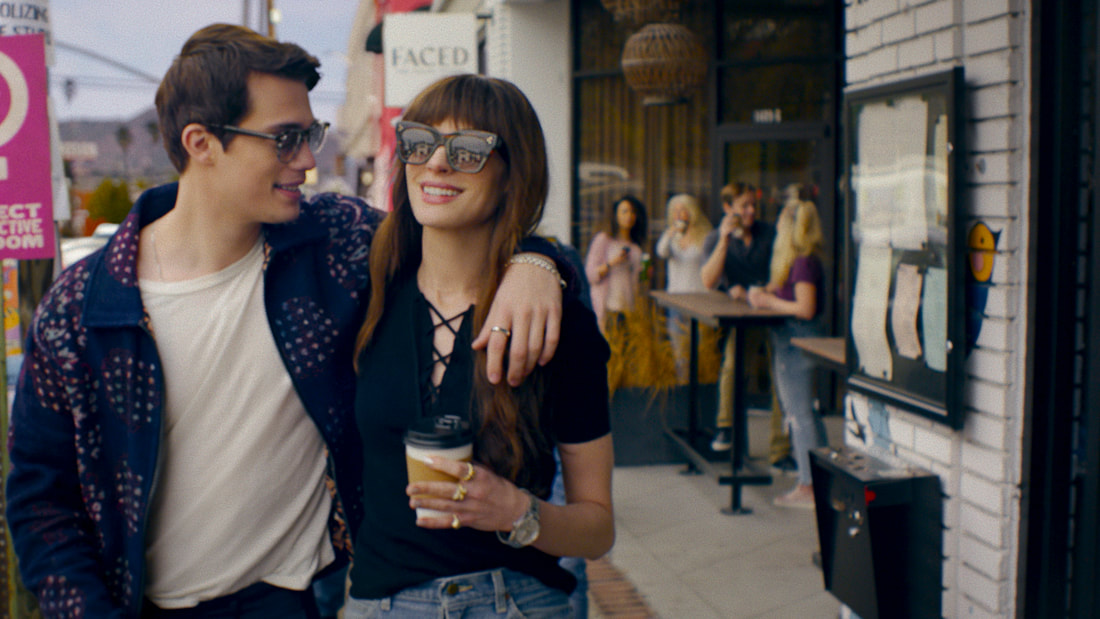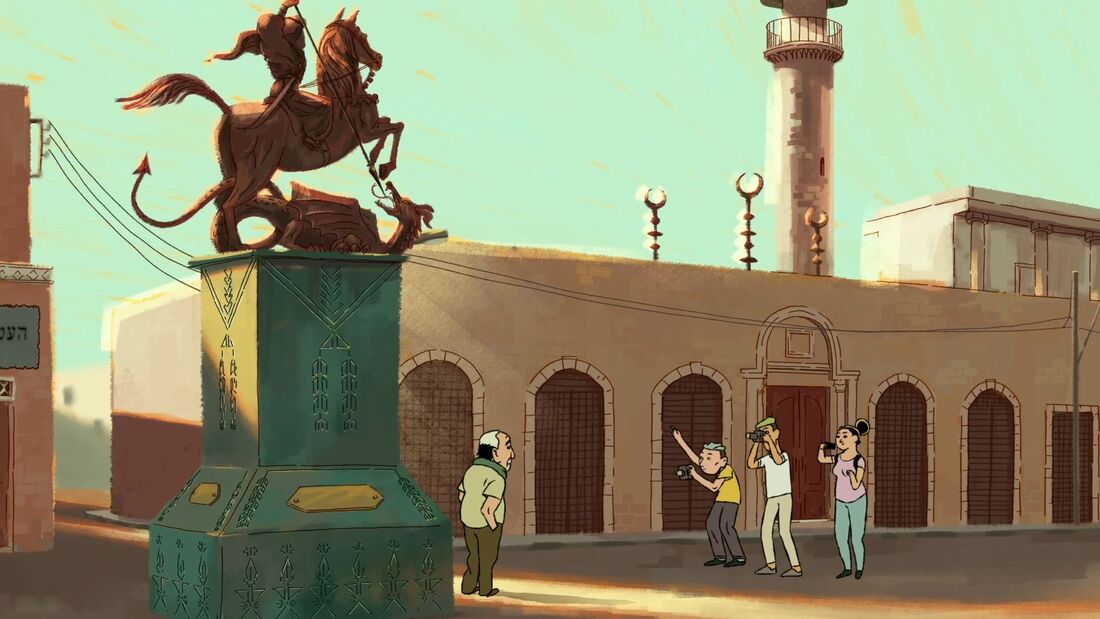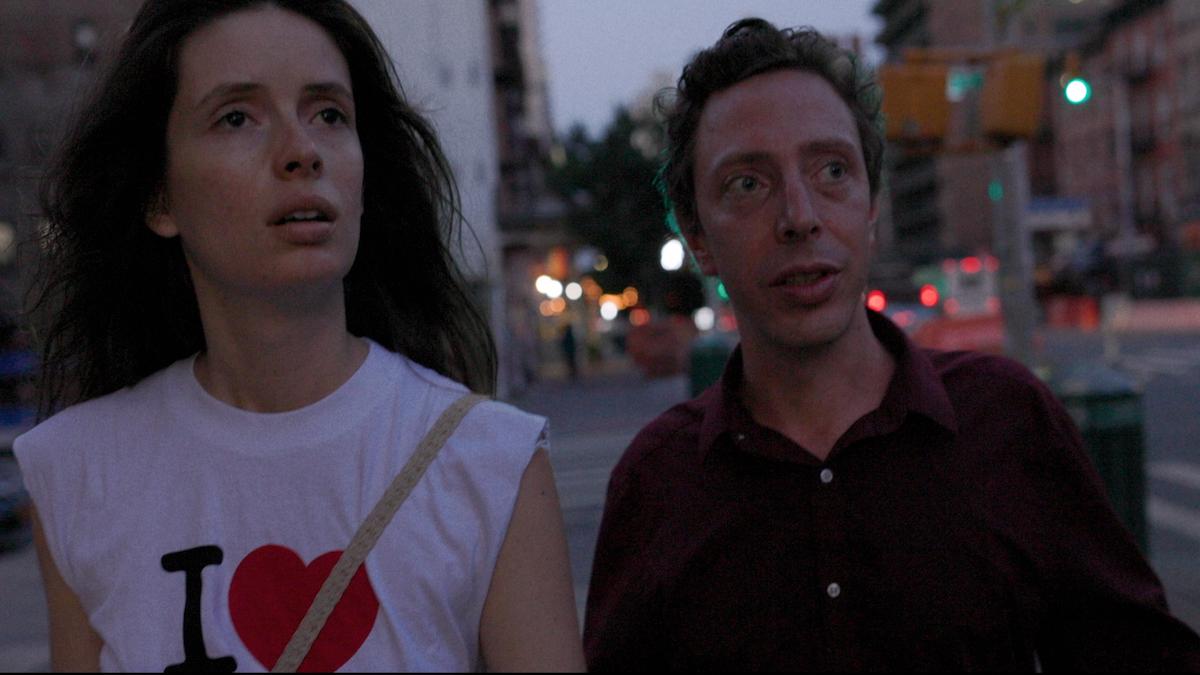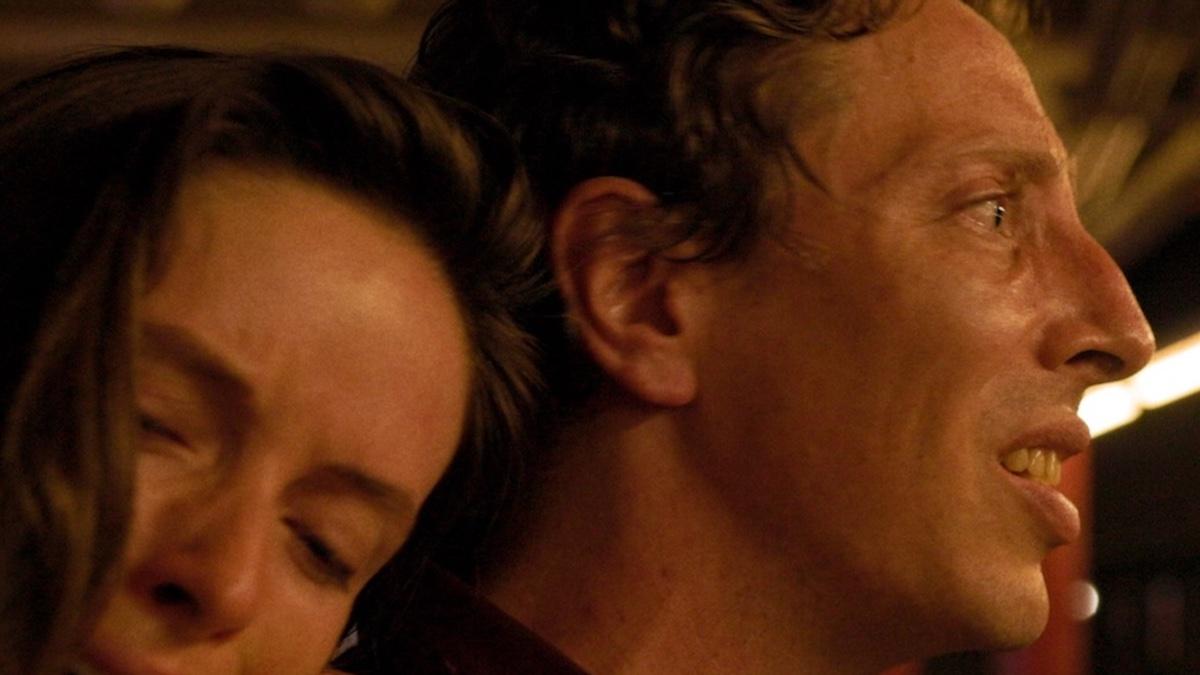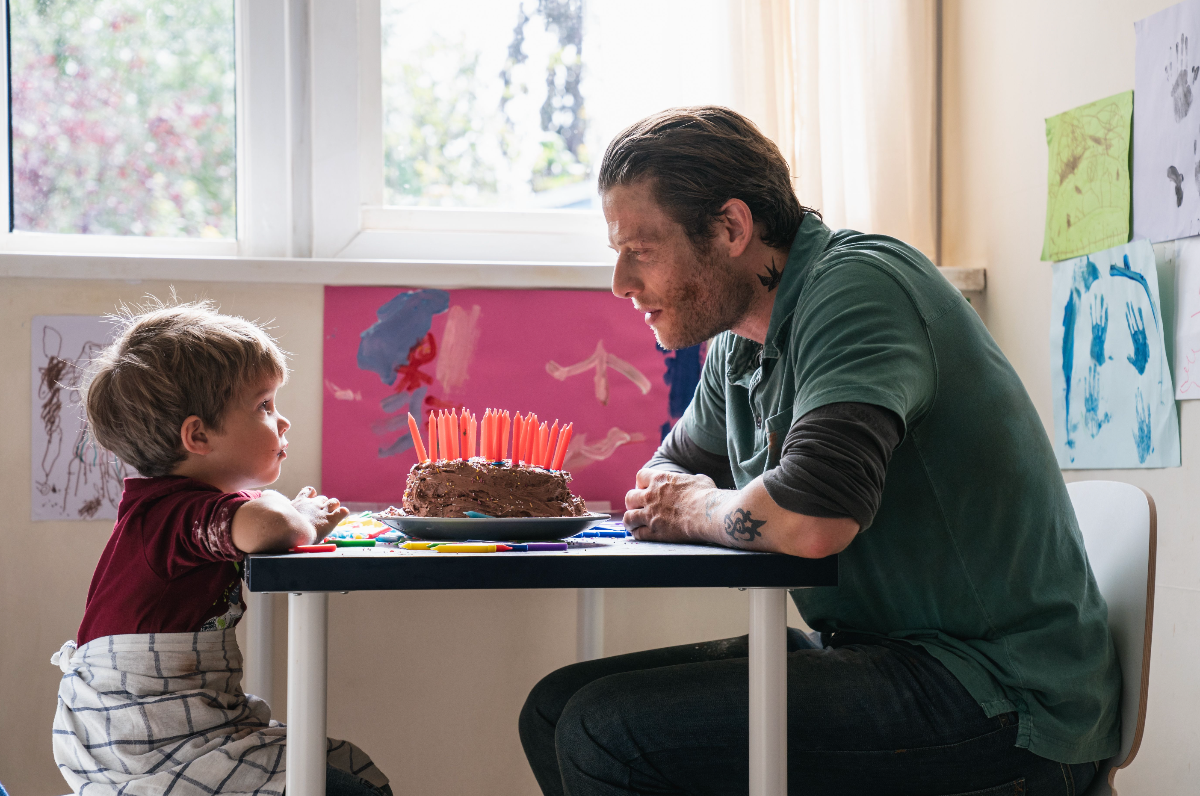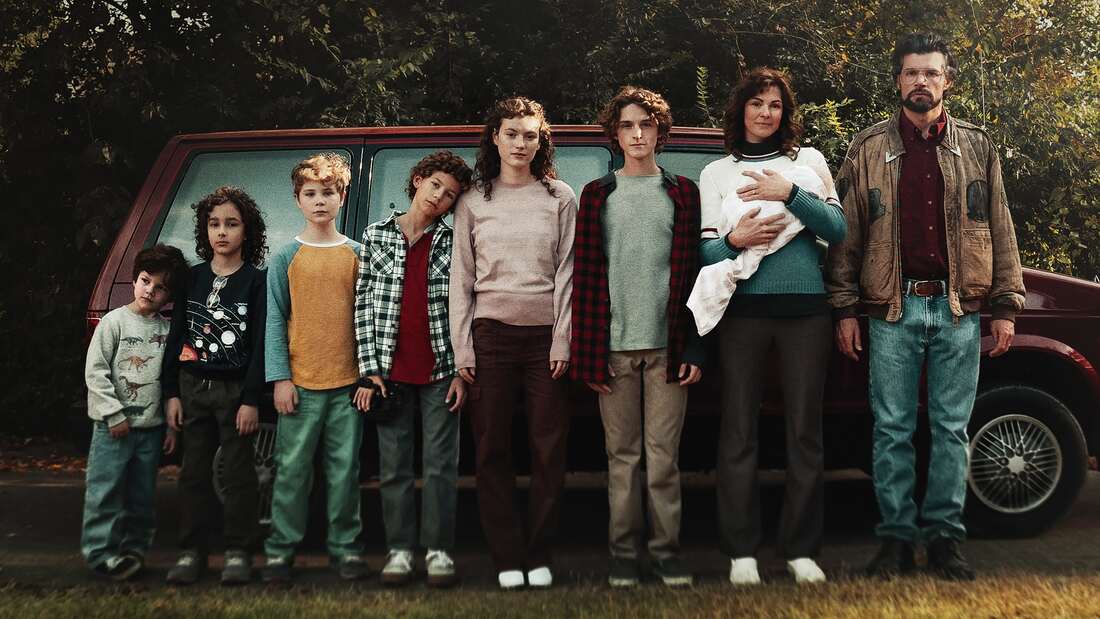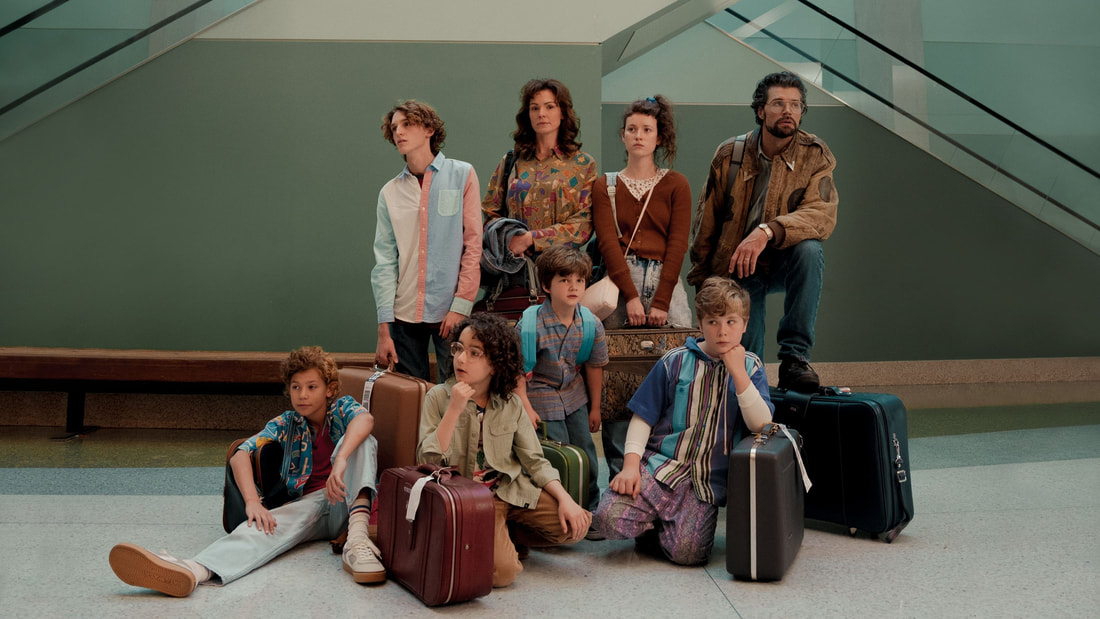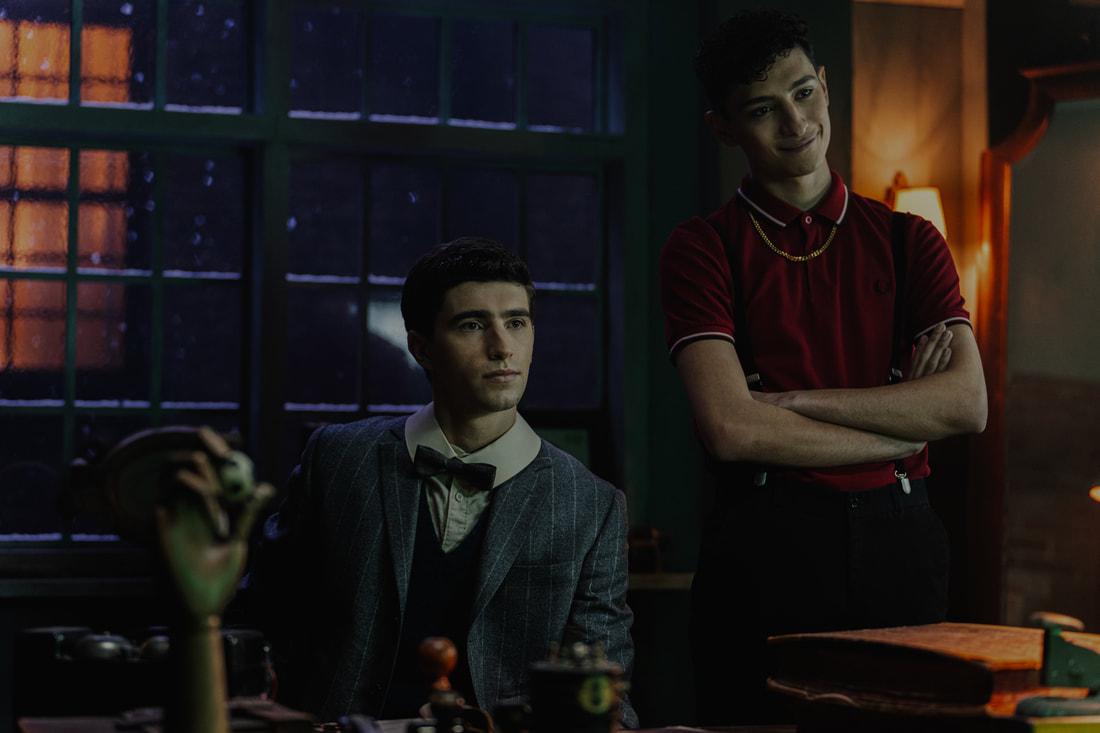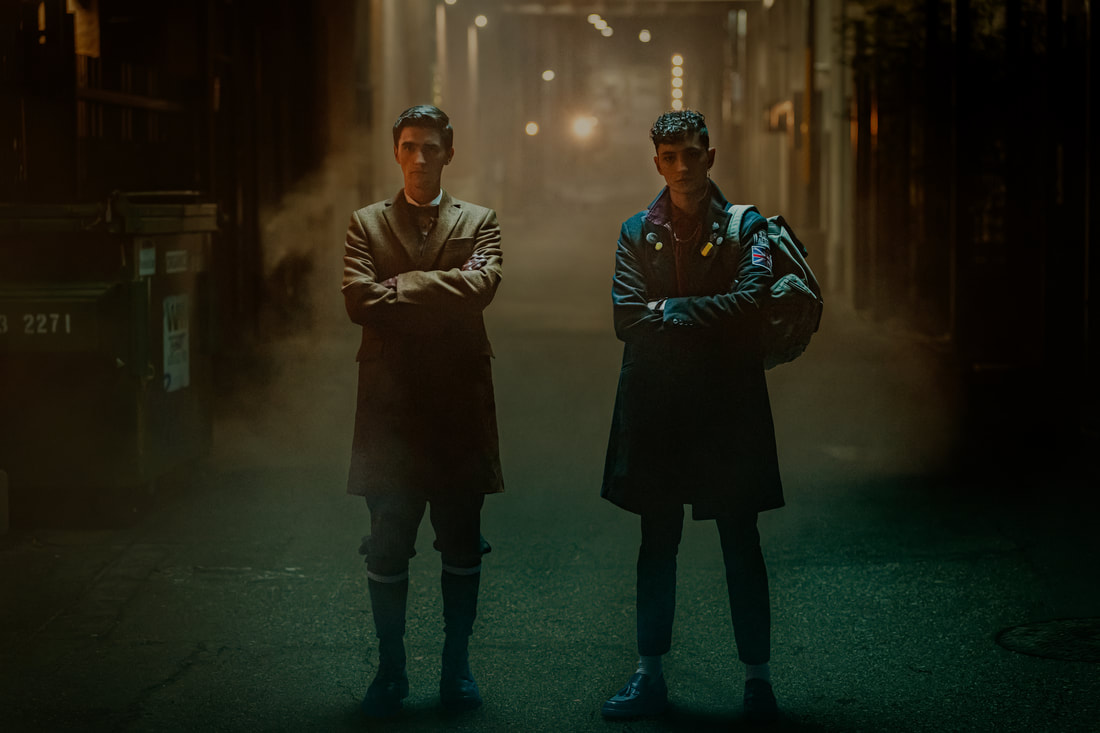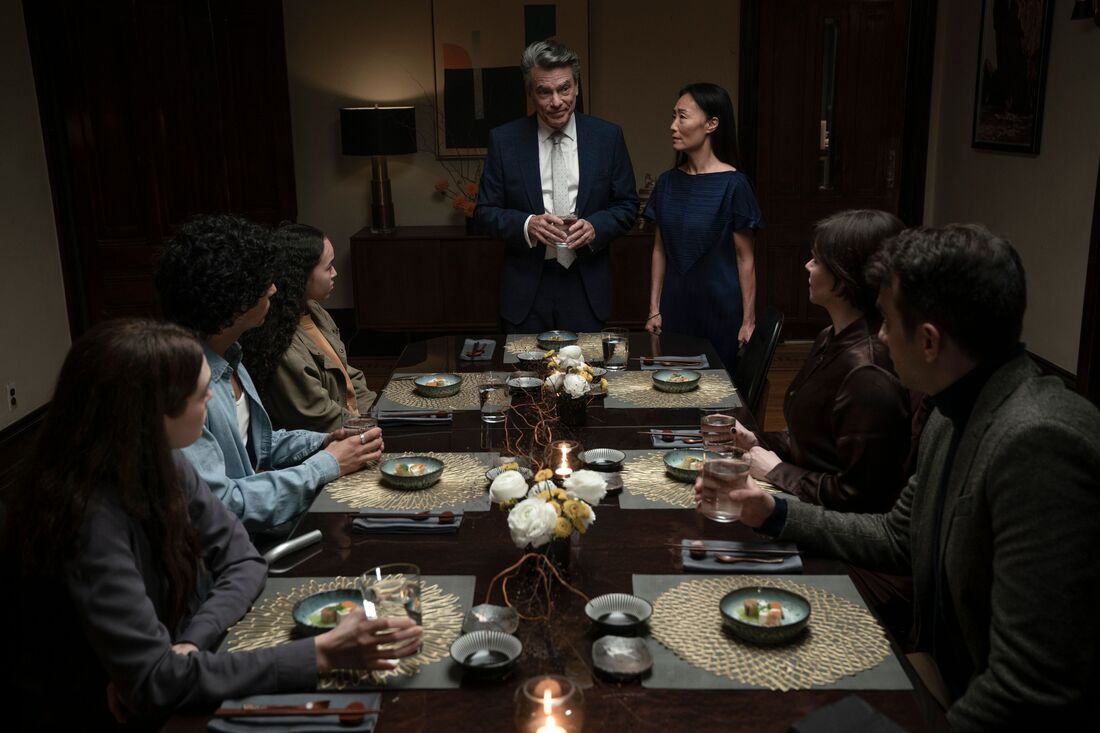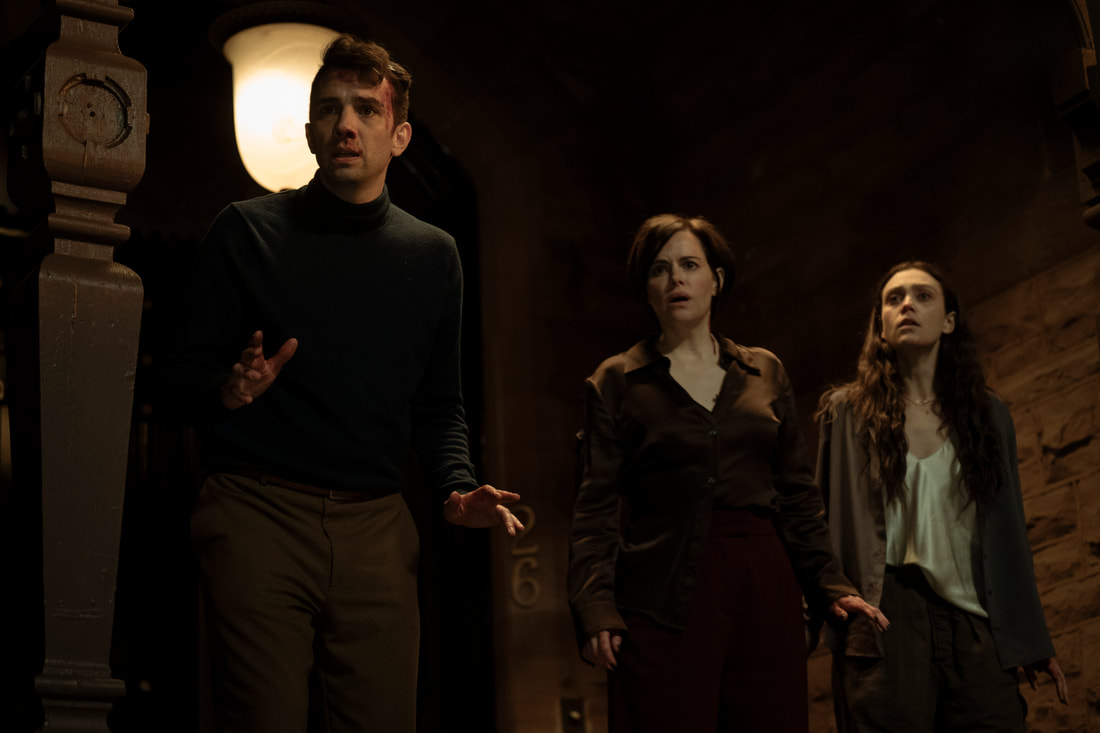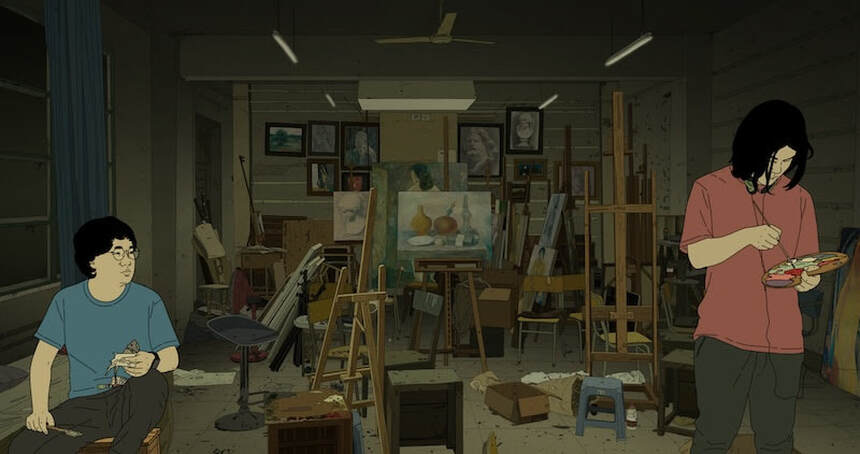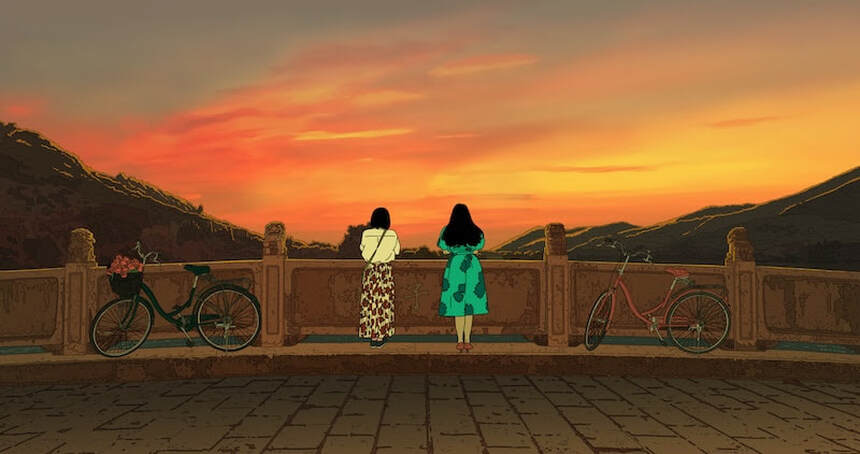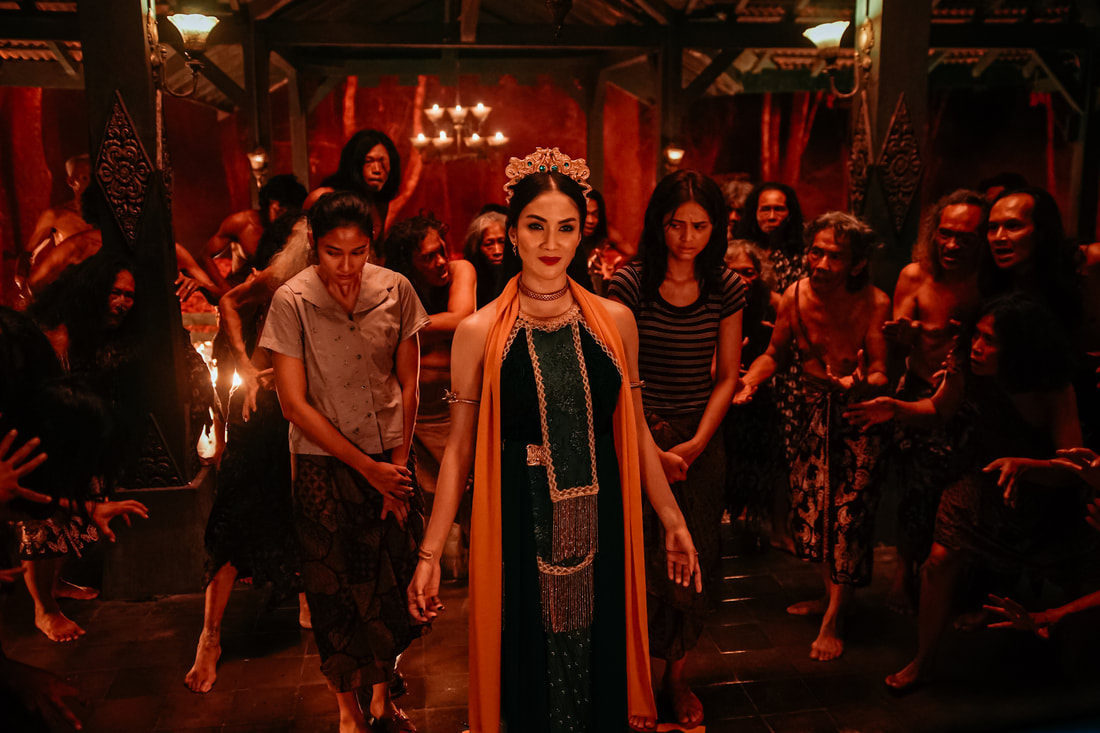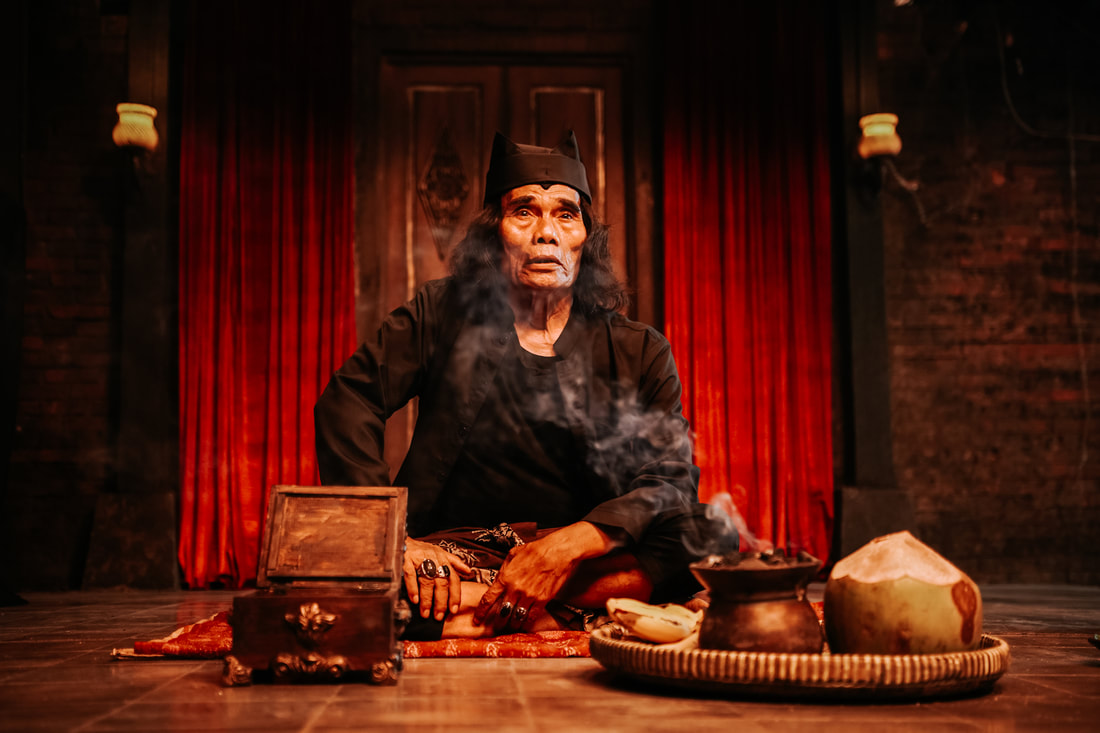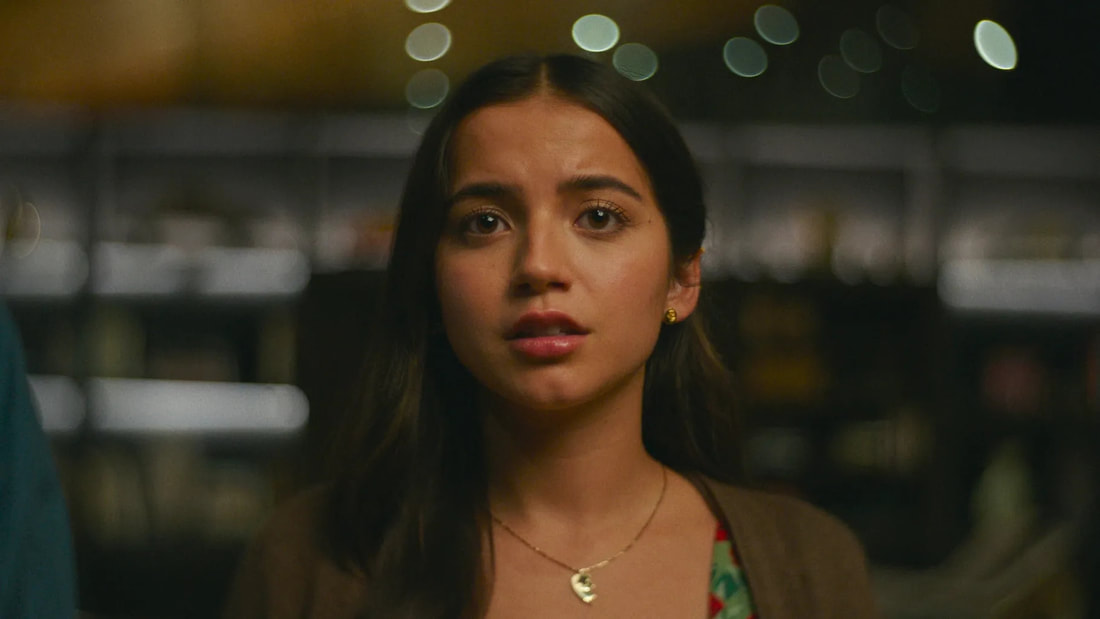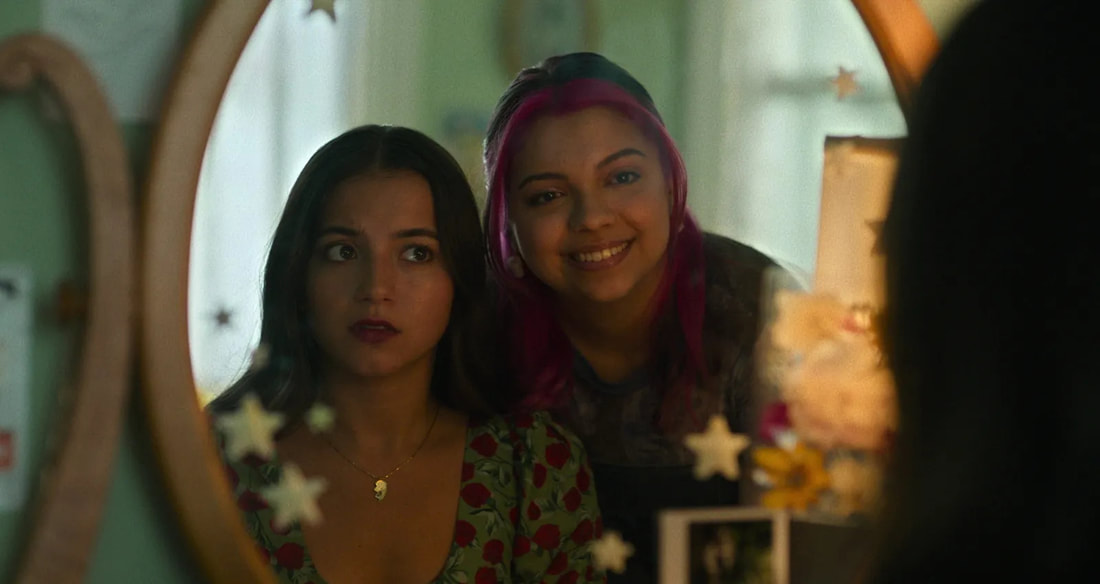|
Review by Sean Boelman
Michael Showalter has brought us some great, unorthodox romantic comedies, including The Big Sick and Hello, My Name Is Doris. While his latest, The Idea of You, is much more conventional and leans on a lot of cheesy tropes, it also takes advantage of its stars’ charisma and talent to deliver a genuinely lovable entry into the genre.
Based on the novel by Robinne Lee, the film follows a 40-year-old single mother who forms an unlikely relationship with the 24-year-old lead singer of one of the most popular boy bands around. If this sounds cheesy and trashy — like A Star Is Born for the Wattpad generation — it’s because it kind of is. However, if you’re willing to enjoy it for what it is, it’s a diverting hour and 55 minutes. The movie attempts to dive into some of the deeper complexities of its age gap relationship, such as the double standard that is applied to men and women dating people who are younger than them. However, it takes a while for the romance storyline to really reach full speed, and by that time, it ends up feeling rushed to explore all of its themes in the back hour. Still, the characters are so incredibly likable that it’s hard not to get swept away by The Idea of You’s romance. It’s refreshing to see a film told from the perspective of a perspective that’s not too often showcased as a romantic lead in movies like this — even if the actress cast in the lead role is one of the few that Hollywood would still let carry a movie like this.
On the one hand, Anne Hathaway gives one of her best performances in years in this role, bringing a ton of charm and humor to the character but also elevating it with a nuance that many other actors would not have explored. At the same time, the movie seems to treat her as if she’s “plain” — not one of the highest-paid actresses of all time who is known for her beauty. This does make the third act’s conflict somewhat hard to believe.
As for Nicholas Galitzine, one of the brightest rising stars in the film industry today, he yet again proves that he has what it takes to be a movie star. Although he’s quickly becoming typecast as the attractive guy who seems dumb on the surface but has a deeper, more sensitive side, he’s good at doing it, so why should he stop? For the most part, the movie is shot in a pretty straightforward romantic comedy style, with the exception of a few editing flourishes that feel ripped out of classic music movies like Micahel Wadleigh’s Woodstock. However, the real star of the execution is its original music, as there are more than a few catchy original songs for the boy band of the film. The Idea of You is a trashy romantic comedy, but as far as the genre goes, you could do a lot worse than this. Thanks to its leads’ genuinely good performances and a storyline that’s consistently charming — even if it’s not as deep as it seems to think it is — this will definitely find life among audiences both young and old. The Idea of You is now in theaters and streams on Prime beginning May 2. Rating: 3.5/5
0 Comments
Review by Daniel Lima In the West, the parameters of acceptable discourse on the subject of Israel and Palestine have been limited to simply acknowledging that there is a cycle of tumult and violence. The perception among the general public has been that interrogating why that is far too complicated, that assigning blame is a fruitless effort, and as a consequence, any solutions are far out of reach. After the past seven months of wanton destruction and killing by the Israeli government against the people of Palestine, that narrative is on the wane, and a situation that had been portrayed as prohibitively complex for decades has undergone a massive reevaluation. It is the perfect time for a film like Lyd, a work that draws a clear line between the sins of the past and our present reality and vociferously argues why contextualizing the present within that broader history is crucial in determining the future. Co-directed by American Sarah Ema Friedland and Palestinian Rami Younis, the film makes no qualms about its perspective: the colonization of the Levant in the aftermath of World War I by Western powers and the Israeli annexation of the city of Lyd represents an original sin that created deep wounds that have never and cannot ever heal so long as the subjugation of the Arab population remains the status quo. To that end, the film explores the city’s history via talking heads, narration, archival footage, and even animation, painting a portrait of a people under occupation and a world that could be different. The firsthand accounts of the Nakba, the 1948 ethnic cleansing of Palestinian families from land seized by Israel that saw thousands dead and hundreds of thousands expelled from their homes, are breathtaking. One man still living in the city recalls being forced as a child by the occupying forces to bury the bodies of those they killed, some so disfigured they had melted; a young man who has spent his entire life in a refugee camp mentions that his grandmother’s house is still standing and occupied by settlers, yet he is not even allowed to enter the city. Most chilling is a collection of testimonies from Israeli veterans, compiled by the IDF itself, where they remember what it was like shooting into building filled with men, women and children. One man, in particular, visibly disturbed, speaks of looking into the eyes of defenseless Palestinians and seeing himself as a murderer through them and how he was to them what generations of oppressors were to his people. Off-screen, someone derisively asks, “What, are you a pacifist now?” as if that is a bad thing. The man clams up. Taken with the contemporary Palestinian accounts, these interviews establish that the origins of this conflict are not ancient, not incomprehensible. They are the direct result of people and are still within living memory, so this conflict is not the hopeless quagmire we are so often told it is. There are some attempts to show what life is like for Arab Israelis, the fallout of the Nakba that continues to rain down. While these slice-of-life scenes serve that purpose, displaying in stark relief what life under oppression is like, there is a certain artifice that is hard to shake. Some moments, like the camera gliding behind a man as he walks through the streets of his ad hoc community, feel perfectly lived in. Then there’s a shot-reverse shot scene of him ordering food at a restaurant, and suddenly, the film has adopted narrative cinematic language in a way that makes it feel inorganic. Nowhere is this more pronounced than in the classroom scene, where a group of children are asked about their identity. Their teacher is brought to tears by the ignorance they display about what it means to be Palestinian, and it is indeed shocking to hear their responses, but that shock can only go so far when the scene is so composed.
That being said, the documentary does have several more fanciful elements that work to varying degrees. The narration is given from the perspective of the city itself, a flourish that lends the film a certain texture but little else. More notable are the animated sequences, glimpses into an alternate world in which the Levant was never colonized by Europe. Admittedly, the rosy vision of a pluralistic society that knows only peace can be seen as a bit fanciful, particularly considering the film does reference religious tensions before the First World war. As is made clear by the finale, however, it is by imagining what could have been and what could be that calcified ideas of how the world is can be shattered. That is the power of Lyd: it shatters assumptions that many may have, until very recently, held unchallenged about the lives of Palestinians under Israeli occupation. The image it presents is filled with pain and suffering, of people forced to see what was taken from them as a daily form of torture, yet it does not simply revel in that suffering. Instead, it diagnoses the root cause, puts a face to the perpetrators, and, in doing so, allows the possibility for justice and a better tomorrow. Lyd arrives in theaters April 26. Rating: 4/5 Review by Camden Ferrell What do you get when you cross Before Sunrise with an insomniac and troubled New Yorker lead? You get Pratfall, writer/director Alex Andre’s feature debut that premiered at the 2023 Brooklyn Film Festival. A perfect example of the power of low-budget filmmaking, Andre paints a portrait of New York through the eyes of his lead characters in an engaging and simple manner even if it can sometimes lose its way on its journey. Eli is an unsettled man in New York grappling with his own complicated problems both internal and external. His life has become filled with insomnia, conversations with himself, and interacting with the rest of the city. One day, he crosses paths with Joelle, a French tourist. Together, they go on an odyssey through New York City where Eli paints a picture of the city with his embellished words as Joelle joins along for the ride. This story of two people crossing paths for a memorable night of conversation and exploration has been done before, but it also doesn’t make it any less compelling as a premise. At times, it’s hard to distinguish whether dialogue is scripted or improvised, which is a testament to Andre’s ability to write such naturally flowing dialogue. It never feels forced or unnaturally philosophical, a trait that most movies of this kind are guilty of for better or worse. Sometimes the dialogue meanders more than it should, but this also contributes to the heightened realism of the film, so it’s not necessarily a net negative. There are some narrative beats that definitely feel out of place throughout the movie and take the audience out of the small-scale connection it is so good at achieving from the start. This movie is led by Joshua Burge and Chloé Groussard as Eli and Joelle. Burge takes on the lion’s share of the dialogue and does well with it, conveying the more subtle troubling aspects of Eli without becoming a caricature. It’s a unique character to play especially as a lead, but Burge is able to handle the character well enough to be distinct without undermining the realistic nature of the film. While Groussard is given less dialogue, she plays perfectly off of Burge. Her naïve optimism of New York’s urban landscape works very well with her character, and she really gives the character more personality and agency than she would have otherwise gotten. It really does feel like Eli is a part of Joelle’s story by the end, not the other way around, and this is mostly due to how Groussard carries herself as a character.
One of the aspects I admire most about this film is how it is so effective without breaking the bank. Andre shot this movie himself (on what feels like a low budget camera), and it practically uses handheld, wide-angle shots exclusively, and it’s a perfect fit for the type of story he’s trying to tell. It’s like a combination of Terrence Malick’s signature contemporary look and the more frantic and free-flowing feel of the Dogme 95 and mumblecore movements of filmmaking. Andre’s debut is impressive, and I’ll definitely be citing it as a prime example of how to make a movie regardless of budget or other limitations. Pratfall is a gem of a film. It’s not perfect, and it has some odd moments that detract from its desired effect. However, this film has so much to praise, and it all falls under the umbrella of Andre’s vision on an utterly impressive debut feature. Not without its flaws, this is a sweet and simple story that audiences will connect with in one way or another if they let it. Pratfall is in theaters and on VOD April 26. Rating: 4/5 Review by Joseph Fayed A parent should always consider what's in their child's best interests. Nowhere Special is a film that takes a child's well-being into consideration and a father having to use his intuition to make a crucial decision in a short period of time. The story packs its punches with a father and son at its forefront, acting out the emotional stakes of this unorthodox parenting tale while keeping its heart on its sleeve the entire time. John (James Norton) is a 35-year-old window washer with just months to live. In light of this, he must work with an adoption agency to find the right family for his four-year-old son Michael (Daniel Lamont) to live with after he dies. John struggles with making this life-altering decision for his son, feeling immense pressure to make the right choice. However, as time runs short, John must learn to let go and listen closely to the input of his four-year-old, who is catching on to why such a heartbreaking decision must be made. One thing the script impressively avoids is tropes about terminal illness. John's diagnosis isn't explained in detail, although there are moments where we do see how his condition affects his job and day-to-day life. John has to carry on with life even in the face of death. The plot never transforms into tragedy porn because there is so much focus on John and Michael and finding a new home for the latter. No life-and-death anecdotes are shared amongst characters or an overdrawn bedside moment set in a hospital. A Nicholas Sparks novel, this is not. It is about parenting first and foremost, and death, while inevitable, is not treated like a standard plot device. Daniel Lamont really acts like he had such freedom with his character. For someone who is playing a main character who is only four years old, Michael is written as his age and not too mature. Michael is a kid who loves his dad. He seems confused when he and his dad are accompanied by a social worker to visit different families. While he may not fully understand why that is being done at first, it gives Michael a reason to love his dad even more. Normally, in a film, I would roll my eyes at this kind of character development only occurring as a direct result of a personal tragedy, but a child his age shouldn't be expected to grasp the emotional toll this has on the adults around him. That is why, in between potential family visits, any scenes with John and Michael are meant to show them bonding over the smallest of activities. There is such a warm and playful energy with Michael on screen that serves as the perfect contrast to what John is dealing with.
James Norton gives a stellar performance as John. Norton uses his range to be equally worrisome and wholesome at times. His chemistry with his co-star Lamont makes it seem like the two really bonded and that his wholesome demeanor rubbed off on his fictional son. The potential families they visit all have their own experiences with adoption that they unload onto John and Michael, each trying to seem less chaotic than the previous one. These interactions are kept brief, and one particular family shown is guaranteed to leave a sour taste in almost every viewer's mouth due to how unpleasant they are. The point of that scene is to prove the harsh reality of adoption; despite your appearance, not everyone is willing to cater to your needs. It's a notable departure from the rest of the film that gets John to question everything he and his son have been through. Nowhere Special was done in the name of fatherly love. It is impressive how two topics like adoption and terminal illness were written in such a way that they don't feel exploited for our pity. Kids really want nothing more than parents who love them, and vice versa, and John and Michael were two perfect embodiments of that. Nowhere Special is now in theaters. Rating: 5/5 Review by Cole Groth Unsung Hero is your standard religious drama. If you're aware of the Christian music scene, you've undoubtedly listened to the work of the Christian pop band for KING & COUNTRY. The band, led by Australians Joel and Luke Smallbone, has won four Grammys since 2015 and has solidified themselves as one of the biggest Christian bands of our time. Now, the band's lead singer, Joel Smallbone, is ready to tell his life story as the director and lead actor in this basic, overdramatic biopic of his family and upbringing. With too much focus on religion and not enough good character moments, this falls flat across the board. Taking place in the early 1990s, Unsung Hero tells the story of David and Helen Smallbone, two hard-working Australian immigrants moving to Tennessee with their six children. The move to America isn't as bright as it seems, with the two facing many trials and tribulations on their journey to raise one of the most successful modern Christian artists. It's a narratively satisfying story that doesn't offer much of a unique perspective — the Smallbones face many challenges along the way but ultimately get through it thanks to their Christian faith. At the beginning of the film, Joel and Luke explain the thesis of the film's existence as a love letter to their parents and God. There's something very endearing about the fact that this was made less as an explanation of why the Smallbones are so successful but as a testament to their parents. David, the patriarch, is played by Joel himself and is shown to be an endlessly hard-working man alongside Helen, who tirelessly stretches every dollar in an attempt to feed her family. Even after working dozens of odd jobs to make ends meet, the Smallbones constantly find themselves with nothing left to their name. It feels a little unbelievable sometimes because even after receiving so much aid from others and getting so much work, the family is still totally broke. So, we're left with two conclusions: Joel is overplaying how much his family struggled or how hard his parents worked. Either one cuts into the credibility of the film. The thing about Unsung Hero is that because the successful children tell the story, there aren't any flawed characters here. Joel and Helen are unflappable in their efforts to raise their children right and never do anything wrong. I don't get the impression that the story is entirely honest, and even if the Smallbones were such a flawless family, it's just not particularly interesting to watch. Every problem is one entirely because of the doing of others and gets solved through the family's resilience, Jesus, or the generosity of the kind Christians who surround them.
From a production standpoint, this is an entirely competent film. It's a tad long at almost two hours, but the editing is at least interesting enough to be a little captivating. The cinematography can be interesting at times, and the acting is good. Joel Smallbone, Daisy Betts, Kirrilee Berger, and Jonathan Jackson are a few of the actors in a very large cast that delivers a good performance, but Smallbone and Betts are clear standouts as the leads. As a film about for KING & COUNTRY, you'd probably expect more music to be made by the brothers of the band. Instead, all of the bland music featured in the film is from the daughter, Rebecca, instead. Those wanting to see how the band came to be might be disappointed by the lack of the brothers behind it. Unsung Hero falls into the pitfalls of almost all Christian films, having a contrived conflict entirely solved by faith in Christianity. The Smallbones face one true flaw in their parenting: they're too caring. Even when David gets angry at his children, it's clear that he has the best intentions when talking about what he's talking about. Even after the big argument in the film, the next scene undoes any potential conflict viewers might have about the characters. Fans of Christian filmmaking will probably not find much wrong with this, but is it too much to ask these types of movies to be less overbearing? Everybody but the Christians in this film are cruel to the Smallbones, making this feel like an ultimately shallow film. Unsung Hero releases in theaters starting April 26 Rating: 1.5/5
Review by Sean Boelman
After the success of their first Neil Gaiman adaptation, The Sandman, it only makes sense that Netflix would want to get all-in on the Gaiman business. Based on characters introduced in the aforementioned comics before being spun off into their own series, Dead Boy Detectives brings a flawed but fun macabre noir to the streaming service’s library that will surely be the next obsession of young subscribers everywhere.
Dead Boy Detectives follows two ghosts who decide not to enter the afterlife, opting instead to stay on Earth and investigate supernatural crimes. If you split the difference between a spookier Sherlock Holmes and a campier X-Files, that’s about where Dead Boy Detectives falls. It’s dark and mature enough to entertain adults but not so edgy as to be too much for a pre-teen/teen audience. (It is TV-MA for some f-bombs, but it’s pretty tame as far as streaming series go.) The show presents a series of interesting cases, and while some are more exciting than others, the duller episodes are nicely padded with other conflicts, like romance or an overarching supernatural threat. In this way, the show does an excellent job of capturing the anthology-esque nature of a comic adaptation while still giving us plenty to care about in the grand scheme of things. Of course, a series like this is only as good as its leads, and the actors who play the eponymous duo are tremendous discoveries. George Rexstrew is a complete newcomer, with only a short film credit to his name, and Jayden Revri has only a few more. However, they bring charm and confidence to their roles that would rival the young leads of any major franchise. They are funny, likable, and have excellent chemistry with one another.
This is also the rare show that doesn’t pad its supporting cast with big names to steal the show — a wise decision considering how talented Rexstrew and Revri are. The most recognizable recurring star is Lukas Gage, who’s admittedly delicious as one of the show’s secondary antagonists. But the rest of the ensemble, including Kassius Nelson, Yuyu Kitamura, and Michael Beach, among others, all do a great job of infusing personality into their characters.
However, this large ensemble is also where the show begins to falter. Ultimately, Dead Boy Detectives juggles too many storylines. Between the leading trio’s overall arcs, the individual cases, and the arcs of several characters they meet along the way (from the butcher that rents our heroes their space to their dealer of magical antiques), there’s so much happening in the story that it feels hyperactive within the confines of an eight-episode season. The series's below-the-line aspects also sometimes let it down. The world of any Neil Gaiman creation is incredibly rich, and show creator Steve Yockey and his staff of writers take some big swings with Dead Boy Detectives. Unfortunately, a few of those swings are held back by budget. Some of the set pieces have flagship-level ambition, but since this is the first season of an “untested” IP, they don’t get quite the scale they seemed to hope for, drawing viewers out of the world. Nevertheless, Dead Boy Detectives manages to be a genuinely good time throughout the entirety of its eight-episode run. It has its fair share of cheese, but its world is so vibrant that viewers will be clamoring to spend more time with these characters. Hopefully, this will inspire Netflix to put even more behind the next season and future Gaiman adaptations. Dead Boy Detectives is now streaming on Netflix. All eight episodes reviewed. Rating: 4/5
Review by Sean Boelman
A movie with the pedigree of the Cronenberg name should really be making a bigger splash than Caitlin Cronenberg’s feature debut, Humane. Thus, with its relatively low-key release, it will come as little surprise to cinephiles that Humane is, frankly, not very good, suffering from wildly uneven writing by Michael Sparaga, who wastes the potential of his premise.
The film is set in a near future, where humanity is on the brink of a collapse due to an environmental catastrophe, and a program has begun where people can be voluntarily euthanized in exchange for a substantial payment to a beneficiary. A family finds itself at a difficult crossroads when their father announces he plans to enlist in the program. While this premise is incredibly intriguing, the novelty of the idea wears off after the first act, leading to a remaining two-thirds that’s extremely contrived — sometimes even laughably so. Although the antics are mostly entertaining, they’re so ridiculous that it’s hard to take the movie seriously. At a certain point, the lines between the intentional dark humor and the laughter it elicits from ham-fisted writing become indistinguishably blurred. Humane is the type of movie that wears its message on its sleeve. No audience member will walk away remotely confused about the film’s environmentalist and anti-capitalist messages. While this horror-tinged sci-fi premise could have been a thought-provoking way to explore these themes, Sparaga’s script seems far less interested in provoking thought in viewers than telling them how they should think and behave.
However, the main area where Sparaga’s script falters is that it does not give the audience any characters to care about. There have been plenty of satires about rich, unsympathetic a**holes that have worked quite well, but Humane does not join those ranks. The intention is clearly to remind the audience of our need to reconnect with our humanity by showing us characters who are so egregiously severed from it, but it’s hard to really resonate with this decision if you’re rooting for most of the characters to die.
Still, despite the utterly flat archetypes of characters they are given, the talented cast manages to make the most of their roles. Jay Baruchel and Emily Hampshire are both gleefully over the top, and Sebastian Chacon is the most grounded of the cast. However, it’s the supporting cast that shines the brightest. Peter Gallagher’s turn is utterly commanding, carrying the first act (that ends up being the strongest portion of the movie), and character actor Enrico Colantoni is the only reason viewers will remain invested in the back two-thirds. Apart from a few graphics — like fake newscasts and public service announcements — whose quality does begin to show the film’s budget, the below-the-line aspects of Humane are mostly solid. It’s not a particularly gruesome picture, with only a few short (but effective and impactful) bursts of violence. Instead, Cronenberg opts to build tension through claustrophobia and does so quite well within the confined setting. It’s a shame that Humane is Caitlin Cronenberg’s feature directorial debut because she’ll be blamed for many of the movie’s problems that really lie with Michael Sparaga’s script. It’s really not possible to tell if she has the same juice as her brother (or her father, for that matter) until she gets her hands on a better script. As for the movie itself, it’s torn down by tedium and heavy-handedness. Humane hits theaters on April 26. Rating: 2.5/5
Review by Sean Boelman
After his widely acclaimed Have a Nice Day made a splash there in 2017, animator Liu Jian returned to Berlinale with his third directorial outing, Art College 1994. Although there is much to admire about Liu’s artistic style, his latest outing is far too meandering in a narrative sense to appeal beyond an extremely niche core of cinephiles.
Inspired partly by the director’s own experiences, the film follows a group of art students on a Chinese art school campus in the mid-1990s as they wander through life in pursuit of purpose and the hope of creating something meaningful. As is often the case with semi-autobiographical movies, it feels like Liu really struggled to narrow down what the audience needs to see and what they won’t care about. From the moment it begins with a quote from James Joyce’s A Portrait of the Artist as a Young Man, it’s clear what level of pretension Art College 1994 is functioning on. It’s a movie about a bunch of kids talking about things that are well beyond their wisdom. If you are willing to suspend your disbelief that every conversation these art students have is some profound meditation on art or life, you might get something of value out of this. However, for most, this slice-of-life film will feel more like an impersonation of life than a capture of life. Because all of the characters in the movie are constantly regurgitating dialogue meant to be “deep,” there’s no variance in the ensemble. The characters all feel like vessels for the writers’ observations, lacking distinct personalities of their own. As a result, it’s difficult to buy into the friendship dynamic — the key element missing for the success of this as a hangout film.
Of course, as is the case with virtually every movie in the genre, the pacing of Art College 1994 is incredibly relaxed. The hour and fifty-odd minutes go down easy, even if they aren’t particularly challenging or entertaining. Shan Lin and Jian Liu’s script certainly has some moments that are charming or funny, but few are likely to stick with viewers after the film ends.
It also doesn’t help that the voice performances are incredibly monotonous. For most of the runtime, everyone in the movie speaks in a very cool, controlled voice. In a way, it makes sense, considering there’s not a ton of escalation in the conflict, but it doesn’t lend itself to a particularly engaging or cinematic watch. Indeed, the only aspect of Art College 1994 that is likely to make a big impression on viewers is the animation. The general character design and settings are fine, but the movie really shines when it replicates different art styles. As the characters explore different movements and styles of art, the film begins to incorporate some of these elements — whether through the work they are creating or entire sequences of the movie, infusing it with much-needed personality. Art College 1994 boasts some impressive animation, but its story and script are nowhere near as deep as they perceive themselves to be. Although it’s hardly a bad movie, and nothing is offensive or particularly off-putting about it, audiences are likelier to walk away from this film feeling indifferent than they are to be moved. Art College 1994 hits theaters on April 26. Rating: 2.5/5 Review by Daniel Lima Those unfortunate souls suffering through the aggravating throes of insomnia need suffer no more; Dancing Village: The Curse Begins is here to cure you. An Indonesian horror prequel helmed by Kimo Stamboel (half of the Mo Brothers directing duo with Timo Tjahjanto), this follows in the ignoble tradition of both the director’s previous work and the original film by being ugly, slow, dull, and generally bereft of all the qualities one would want in a story. KKN, Curse of the Dancing Village was based on a Twitter thread that went viral in Indonesia — a story about a group of college kids doing community service in a remote village inhabited by a variety of strange spirits, most notably, a woman draped in ornate clothes who compels people to sin and to enter her nefarious court to entertain her forever. While that film was a huge commercial success within its home country, it failed to generate any tension, horror, atmosphere, or empathy for its characters. Not much is different here. Though set decades before the events of the first, it follows the same general template: a group of young people enters the village, a series of strange encounters occur, and two hours later, the movie ends. The group only includes four people rather than the six in the original, but they receive even less characterization. They are not entirely unaware of the threats that dwell within this distant outpost, yet they still foolishly blunder about from terror to terror without ever naturally reacting to the lunacy happening around them. The hamlet is almost identical to how it looks forty years later, squandering the opportunity to cast it in a new light. It’s almost surprising how little this film adds to the world. One would hope a notable director would at least deliver on genre thrills. That would mean one has not seen any of Kimo Stamboel’s work; if DreadOut and his The Queen of Black Magic remake are any indication, he lacks the imagination and command of the craft to deliver a genuinely frightening or disturbing horror film (he also is the director of Sewu Dino, the second film in the series, but there are only so many hours in the day). With the exception of one moment of grisly practical effects work, every sequence meant to evoke terror instead inspires boredom: lots of screaming in reaction to a figure suddenly appearing — in full view, with no attempt at building suspense — and shot-reverse shots attempting to string out what was already a lame attempt at a scare. Add to this a bland visual language only occasionally spiced up with some color, and you end up with a horror film that lurches forward at an agonizing pace.
If there’s any defense to offer the film, it’s that there might be aspects that simply do not translate. In the first film, the antagonist is referred to as a djinn by a devout Muslim; no one calls her that here. Perhaps something is being explored in the relationship between Islam and Indonesian folk beliefs. Of course, they are still photographed in a way that robs them of any weight, and all the fantastic elements of this film were imported from the previous works. It is possible, however, that some of this material will go over the heads of international audiences. Absent that possible context, however, Dancing Village: The Curse Begins is almost wholly without merit. If one is not lulled to sleep from the sheer level of inactivity, this is bound to be an interminable chore of a watch. For those interested in contemporary Indonesian horror, I would respectfully recommend the Tjahjanto’s May the Devil Take You films, as it seems that half is where the talent of the Mo Brothers lies. Dancing Village: The Curse Begins hits theaters April 26. Rating: 1.5/5 TURTLES ALL THE WAY DOWN -- Isabela Merced Shines in Another Less Than Perfect John Green Adaptation4/20/2024 Review by Camden Ferrell After writing The Fault in Our Stars, which sold 23 million copies and was adapted into a hugely successful movie, young adult author John Green followed this up with his next novel Turtles All the Way Down in 2017. This adaptation is being helmed by director Hannah Marks and written by the duo behind movies like Love, Simon and I Want You Back among several television credits. This teen movie features a stellar lead performance and interesting creative choices that can often elevate it past the common pitfalls of the young adult genre. Aza is a high school girl struggling with severe OCD that causes issues with living in her daily life. Alongside her best friend Daisy, Aza finds herself trying to navigate friendship, love, and happiness all while dealing with her mental health. This coincides with Aza reconnecting with her childhood crush after his billionaire father goes missing. This is a simple story of adolescence that tries to tell a familiar story through the eyes of a protagonist we may not be used to seeing in media. There’s not much that stands out about the premise of the movie, it does have room to uniquely explore the main character’s mental health issues. Elizabeth Berger and Isaac Aptaker have proven to be strong writers of romantic comedy, and that comedic touch is present in this film as well. Some of the jokes may be forced, but the characters do have their own distinct personality that comes out through their interactions. I’d say the biggest problem is when they try and pivot to the more serious aspects of this story. When the movie goes into dramatic territory, it can be hit or miss. Some moments feel emotional, earned, and warranted while others can feel clunky. This typically seems to be the problem when adapting John Green’s source material. He occasionally makes great observations about adolescence, but in digging beneath the surface, he can often come off as pretentious and unnatural at times. This is a characteristic that is present throughout the movie and somewhat sticks out. In trying to be a more thought-provoking young adult film, it sometimes backfires as it makes big swings at many central themes and doesn’t always hit. The most impressive part of this movie is the leading performance from Isabela Merced who plays Aza. She is one of the more interesting teen protagonists I’ve seen in the last few years, and Merced is able to take on that burden wonderfully. Her moments of stress, indifference, and paranoia come across clearly, and she definitely fits nicely in both the comedic and serious moments of the movie. Cree (formerly known as Cree Cicchino) co-stars alongside Merced as Daisy. Her character isn’t nearly as three-dimensional, but she still brings plenty of life and personality to the role. It’s a nice contrast to Aza, and she brings a naturally vibrant and effortless energy to the role that is exciting to watch. For such young actresses, both Merced and Cree have demonstrated great talent that shines even when the material isn’t the best.
In my experience, I have always been a bigger fan of Hannah Marks as a writer as opposed to a director, but this is probably the best she has ever been as a director. There are some interesting creative choices that she makes regarding how to best recreate the feeling of Aza’s mental illness for the audience, and it’s quite interesting. Like the script, she can occasionally struggle in her attempt to transcend typical young adult fare. While it’s refreshing to see writers and directors make earnest attempts to make young adult stories more mature, it just doesn’t always work out. Regardless, there are plenty of moments where Marks’ direction and vision shine and should be commended. Turtles All the Way Down has some great moments supported by its talented cast and entertaining writers. It doesn’t always land, and it still has the John Green brand of Tumblr-esque quotes that probably work better on a younger audience. Despite its flaws, this movie is more entertaining than not and feels mostly unique in the young adult genre and should be commended for its exploration of teenage mental health. Turtles All the Way Down is streaming on Max on May 2. Rating: 3.5/5 |
Archives
July 2024
Authors
All
|
|
|
disappointment media
Dedicated to unique and diverse perspectives on cinema! |

